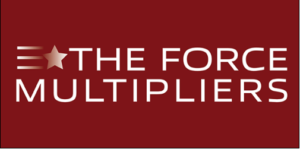In this monthly column, Defense Daily highlights individuals from across the government, industry and academia whose efforts contribute daily to national defense, from the program managers to the human resource leaders, to the engineers and logistics officers.
Amanda Bacchetti leads the team developing composite structures and payload accommodations for United launch Alliance’s (ULA’s) next generation Vulcan Centaur launch system. The system is being developed to launch critical national security space, NASA, and commercial customers.
How did you get involved in the defense industry or community?
After joining ULA, I began my career as a mechanical design engineer working launch vehicle payload attach and protection accommodations for U.S. Air Force and National Reconnaissance Office (NRO) satellites. The introduction to these amazing assets launched by ULA drove me to move into the mission integration organization. There, I worked shoulder to shoulder with the space vehicle integrators at the U.S. Air Force and NRO to successfully launch several missions.
Now, I am the leader of the Vulcan Centaur Payload Accommodations Development team. We are continuing to be the premier launch service provider by developing the future interfaces and payload fairings for highly complex and critical national space vehicles.
What are some challenges you faced working through your career?
A challenge I faced was working on the Mission Integration team, to integrate and launch the first Delta IV Heavy vehicle from the West Coast for the NRO. This mission lacked nothing in terms of challenges; it required extensive launch vehicle modifications, launch pad modifications to support a heavy vehicle, as well as the development of a highly unique payload accommodations suite for the space vehicle. This mission was successfully launched on the first launch attempt.
Did you feel like you always had sufficient mentors and leaders to help guide you? Why/why not?
Yes, I’m very fortunate to work at ULA. The programmatic and technical leadership chains are filled with knowledgeable individuals with decades of experience. Everyone is always willing to share his or her knowledge, expertise, and most importantly, his or her lessons learned and scar tissue with me and the greater community.
How do you work to be a mentor yourself to younger counterparts?
It’s important to be flexible when it comes to mentoring. It seems most people are very interested in being mentored and would like an opportunity to seek feedback. I learned that it’s very effective to setup ad-hoc, one-on-one meetings to discuss a work topic and then allow the individual to naturally transition into mentoring type subjects if desired. Typically, I find a person is comfortable to reach out with future questions or discussion topics as needed. This approach has also been great for me as I’m able to meet with more people and learn more myself.
What does it mean to be successful in your career field?
I view success as two parts—organizational success and personal success. The first, organizational success, is signified by the continued mission success with one launch at a time, including the rollout of Vulcan Centaur and future capability to support the warfighter. The second, personal success, I view as being able to push as many people to achieve their highest capability as possible.
What are some of the under-appreciated positions in the defense field, the unsung heroes or essential cogs in the machine that help the job get done with less recognition?
The amazing folks (and support network) building the Atlas V, Delta IV and Vulcan Centaur rockets day in and day out. The Production Operations team works tireless hours to ensure the launch vehicles are ready to support missions on time. If it wasn’t for their dedication year after year, launch of these critical national assets would not be occurring on time as needed.
How can the industry improve in promoting these individuals and building them up?
Launching rockets is a team sport and the industry can improve by continuing to show gratitude to the teams that work together to make these missions happen. Time to time, our customers come to the factory, to thank the team and talk about the amazing capabilities that are on orbit because of what ULA launched. The insight and appreciation keeps us motivated and reinforces the important work we do.
What is your advice for new entrants to the defense/military community?
Be sure to appreciate and understand the importance of the mission. If you don’t understand that, then you can’t take proper care when executing your job function to support the defense/ military community.
Who are the Force Multipliers in your community? Let us know at [email protected].
